- Home
- Cao Xueqin
A Dream of Red Mansion
A Dream of Red Mansion Read online
Table of Contents
Title Page
Chapter 1
Chapter 2
Chapter 3
Chapter 4
Chapter 5
Chapter 6
Chapter 7
Chapter 8
Chapter 9
Chapter 10
Chapter 11
Chapter 12
Chapter 13
Chapter 14
Chapter 15
Chapter 16
Chapter 17
Chapter 18
Chapter 19
Chapter 20
Chapter 21
Chapter 22
Chapter 23
Chapter 24
Chapter 25
Chapter 26
Chapter 27
Chapter 28
Chapter 29
Chapter 30
Chapter 31
Chapter 32
Chapter 33
Chapter 34
Chapter 35
Chapter 36
Chapter 37
Chapter 38
Chapter 39
Chapter 40
Chapter 41
Chapter 42
Chapter 43
Chapter 44
Chapter 45
Chapter 46
Chapter 47
Chapter 48
Chapter 49
Chapter 50
Chapter 51
Chapter 52
Chapter 53
Chapter 54
Chapter 55
Chapter 56
Chapter 57
Chapter 58
Chapter 59
Chapter 60
Chapter 61
Chapter 62
Chapter 63
Chapter 64
Chapter 65
Chapter 66
Chapter 67
Chapter 68
Chapter 69
Chapter 70
Chapter 71
Chapter 72
Chapter 73
Chapter 74
Chapter 75
Chapter 76
Chapter 77
Chapter 78
Chapter 79
Chapter 80
Chapter 81
Chapter 82
Chapter 83
Chapter 84
Chapter 85
Chapter 86
Chapter 87
Chapter 88
Chapter 89
Chapter 90
Chapter 91
Chapter 92
Chapter 93
Chapter 94
Chapter 95
Chapter 96
Chapter 97
Chapter 98
Chapter 99
Chapter 100
Chapter 101
Chapter 102
Chapter 103
Chapter 104
Chapter 105
Chapter 106
Chapter 107
Chapter 108
Chapter 109
Chapter 110
Chapter 111
Chapter 112
Chapter 113
Chapter 114
Chapter 115
Chapter 116
Chapter 117
Chapter 118
Chapter 119
Chapter 120
Chapter 1
Zhen Shiyin in a Dream Sees the Jade of Spiritual Understanding
Jia Yucun in His Obscurity Is Charmed by a Maid
This is the opening chapter of the novel. In writing this story of the Stone the author wanted to record certain of his past dreams and illusions, but he tried to hide the true facts of his experience by using the allegory of the jade of “Spiritual Understanding.” Hence his recourse to names like Zhen Shiyin. But what are the events recorded in this book, and who are the characters? About this he said:
“In this busy, dusty world, having accomplished nothing, I suddenly recalled all the girls I had known, considering each in turn, and it dawned on me that all of them surpassed me in behaviour and understanding; that I, shameful to say, for all my masculine dignity, fell short of the gentler sex. But since this could never be remedied, it was no use regretting it. There was really nothing to be done.
“I decided then to make known to all how I, though dressed in silks and delicately nurtured thanks to the Imperial favour and my ancestors’ virtue, had nevertheless ignored the kindly guidance of my elders as well as the good advice of teachers and friends, with the result that I had wasted half my life and not acquired a single skill. But no matter how unforgivable my crimes, I must not let all the lovely girls I have known pass into oblivion through my wickedness or my desire to hide my shortcomings.
“Though my home is now a thatched cottage with matting windows, earthen stove and rope-bed, this shall not stop me from laying bare my heart. Indeed, the morning breeze, the dew of night, the willows by my steps and the flowers in my courtyard inspire me to wield my brush. Though I have little learning or literary talent, what does it matter if I tell a tale in rustic language to leave a record of all those lovely girls. This should divert readers too and help distract them from their cares. That is why I use the other name Jia Yucun.”
Do you know, Worthy Readers, where this book comes from? The answer may sound fantastic, yet carefully considered is of great interest. Let me explain, so that there will be no doubt left in your minds.
When the goddess Nu Wa melted down rocks to repair the sky, at Baseless Cliff in the Great Waste Mountain she made thirty-six thousand five hundred and one blocks of stone, each a hundred and twenty feet high and two hundred and forty feet square. She used only thirty-six thousand five hundred of these and threw the remaining block down at the foot of Blue Ridge Peak. Strange to relate, this block of stone after tempering had acquired spiritual understanding. Because all its fellow blocks had been chosen to mend the sky and it alone rejected, it lamented day and night in distress and shame.
One day as the Stone was brooding over its fate, it saw approaching from the distance a Buddhist monk and Taoist priest, both of striking demeanour and distinguished appearance. They came up to the Stone and sat down to chat.
When they saw the pure translucent Stone which had shrunk to the size of a fan-pendant, the monk took it up on the palm of his hand and said to it with a smile:
“You look like a precious object, but you still lack real value. I must engrave some characters on you so that people can see at a glance that you’re something special. Then we can take you to some civilized and prosperous realm, to a cultured family of official status, a place where flowers and willows flourish, the home of pleasure and luxury where you can settle down in comfort.” The Stone was overjoyed.
“May I trouble you to enlighten me,” it said, “as to what wonderful merits you will bestow on me? And where do you mean to take me?”
“Don’t ask.” The monk smiled. “You’ll find out all in good time.” With that he tucked the Stone into his sleeve and hurried off with the Taoist. But where they went no one knows.
After no one knows how many generations or aeons, a Taoist known as Reverend Void, searching for the Way and immortality, came to Great Waste Mountain, Baseless Cliff and the foot of Blue Ridge Peak. His eye fell on the inscription on a large stone which was still discernible and he read it through. It was an account of the Stone’s rejection for repairing heaven, its transformation and conveyance to the world of men by the Buddhist of Infinite Space and the Taoist of Boundless Time, and the joys and sorrows, partings and encounters, warm and cold treatment from others it had experienced there. On its back was a Buddhist verse:
Unfit to mend the azure sky,
I passed some years on earth to no avail;
My life in both worlds is recorded here;
> Whom can I ask to pass on this romantic tale?
There followed the name of the region where the Stone fell, the place of its incarnation, and the story of its adventures—including trivial family affairs and light verses written to amuse idle hours. The dynasty, year and country’s name were, however, obliterated.
The Reverend Void said to the Stone: “Brother Stone, you seem to think that your tale recorded here is interesting enough to merit publication. In my view, in the first place, there is no way of finding out the dynasty and the year; in the second, there is nothing here about worthy and loyal ministers and how they regulated the government and public morality. There are merely some girls remarkable only for their passion or folly, or else for their small gifts and trifling virtues which cannot even compare with those of such talented ladies as Ban Zhao or Cai Yan. Even if I were to transcribe it, it would hardly arouse much interest.”
“How can you be so dense, master?” protested the Stone with a smile. “If there’s no way of finding out the date, you can easily ascribe this tale to some time in the Han or Tang Dynasty. But since all novels do that, I think my way of dispensing with this convention and just dealing with my own adventures and feelings is more original. Why insist on a certain dynasty or definite date? Besides, most common people of the market-place much prefer light literature to improving books. The trouble is that so many romances contain slanderous anecdotes about sovereigns and ministers or cast aspersions upon other men’s wives and daughters so that they are packed with sex and violence. Even worse are those writers of the breeze-and-moonlight school, who corrupt the young with pornography and filth. As for books of the beauty-and-talented-scholar types? A thousand are written to a single pattern and none escapes bordering on indecency. They are filled with allusions to handsome, talented young men and beautiful, refined girls in history; but in order to insert a couple of his own love poems, the author invents stereotyped heroes and heroines with the inevitable low character to make trouble between them like a clown in a play, and makes even the slave girls talk pedantic nonsense. So all these novels are full of contradictions and absurdly unnatural.
“Much better are the girls I have known myself during my young days. I wouldn’t presume to rank them as superior to all the characters of earlier works, yet their stories may serve to dispel boredom and care while the few doggerels I have inserted may raise a laugh and add zest to wine. As for the scenes of sad partings and happy meetings, prosperity and decline, these are all true to fact and not altered in the slightest to cause a sensation or depart from the truth.
“At present the daily concern of the poor is food and clothing, while the rich are never satisfied. All their leisure is taken up with amorous adventures, material acquisition or trouble-making. What time do they have to read political and moral treatises? I neither want people to marvel at this story of mine, nor do I insist that they should read it for pleasure; I only hope they may find distraction here when they are sated with food and wine or searching for some escape from worldly cares. By glancing over it in place of other vain pursuits, they may save their energies and prolong their lives, sparing themselves the harm of quarrels and arguments, or the trouble of chasing after what is illusory.
“Besides, this story offers readers something new, unlike those hackneyed and stale hodge-podges of sudden partings and encounters which teem with talented scholars and lovely girls—Cao Zijian, Zhuo Wenjun, Hongniang, Xiaoyu and the like. What do you say, master?”
The Reverend Void thought it over, then carefully reread The Tale of the Stone. He found in it both condemnation of treachery and criticism of flattery and evil, but it was clearly not written to pass censure on the times. Moreover it surpassed other books in its voluminous accounts of benevolent princes, good ministers, kind fathers and filial sons, and all matters pertaining to proper human relations, as well as eulogies of virtuous deeds. Although the main theme was love, it was simply a true record of events, superior to those sham meretricious works devoted to licentious assignations and dissolute escapades. Since it did not touch at all on current events he copied it out from beginning to end and took it away to find a publisher.
Since all manifestations are born of nothingness and in turn give rise to passion, by describing passion for what is manifest we comprehend nothingness. So the Taoist changed his name to the Passionate Monk and changed the title of the book from The Tale of the Stone to the Record of the Passionate Monk.
Kong Meixi of eastern Lu suggested the title Precious Mirror of Love. Later Cao Xueqin in his Mourning-the-Red Studio pored over the book for ten years and rewrote it five times. He divided it into chapters, furnished headings for each, and renamed it The Twelve Beauties of Jinling. He also inscribed on it this verse:
Pages full of fantastic talk
Penned with bitter tears;
All men call the author mad,
None his message hears.
Now that the origin of the story is clear, let us see what was recorded on the Stone.
Long ago the earth dipped downwards in the southeast, and in that southeast part was a city named Gusu; and the quarter around Changmen Gate of Gusu was one of the most fashionable centres of wealth and nobility in the world of men. Outside this Changmen Gate was a certain Tenth Street, off which ran the Lane of Humanity and Purity; and in this stood an old temple, which being built in such a narrow space was known from its shape as Gourd Temple. Beside this temple lived a gentleman named Zhen Fei, whose courtesy name was Shiyin. His wife, nee Feng, was a worthy virtuous woman with a strong sense of propriety and right. Although neither very rich nor noble, their family was highly regarded in that locality.
Zhen Shiyin had a quiet disposition. Instead of hankering after wealth or rank, he was quite happy tending flowers, growing bamboos, sipping wine or writing poems—spending his time very much like an immortal. One thing alone was lacking: he was now over fifty but had no son, only a three-year-old daughter named Yinglian.
One long hot summer day as Shiyin was sitting idly in his study, the book slipped from his hand and, leaning his head on the desk, he fell asleep.
In dream he travelled to an unknown place, where he suddenly noticed a monk and a Taoist approaching, talking together. He heard the Taoist ask:
“Where do you mean to take that stupid object?”
“Don’t worry,” replied the monk. “A love drama is about to be enacted, but not all its actors have yet been incarnated. I’m going to slip this silly thing in among them to give it the experience it wants.”
“So another batch of amorous sinners are bent on making trouble by reincarnation,” commented the Taoist. “Where will this drama take place?”
“It’s an amusing story.” The monk smiled. “You’ve never heard anything like it. In the west, on the bank of the Sacred River, beside the Stone of Three Incarnations there grew a Vermilion Pearl Plant which was watered every day with sweet dew by the attendant Shen Ying in the Palace of Red Jade. As the months and years went by and the Vermilion Pearl Plant imbibed the essences of heaven and earth and the nourishment of rain and dew, it cast off its plant nature and took human form, albeit only that of a girl. All day long she roamed beyond the Sphere of Parting Sorrow, staying her hunger with the fruit Secret Love and quenching her thirst at the Sea of Brimming Grief. But her heart was heavy because she had not repaid the care lavished on her.
“Just then, as it happened, Shen Ying was seized with a longing to assume human form and visit the world of men, taking advantage of the present enlightened and peaceful reign. He made his request to the Goddess of Disenchantment, who saw that this was a chance for Vermilion Pearl to repay her debt of gratitude.
“‘He gave me sweet dew,’ said Vermilion Pearl, ‘but I’ve no water to repay his kindness. If he’s going down to the world of men, I would like to go too so that if I repay him with as many tears as I can shed in a lifetime I may be able to clear this debt.’
“This induced many other amorous spirits who had n
ot atoned for their sins to accompany them and take part in this drama.”
“That certainly is odd,” remarked the Taoist. “I’ve never heard of repayment with tears before. I imagine this story should have more fine points than the usual run of breeze-and-moonlight tales.”
“The old romances give us only outlines of their characters’ lives with a number of poems about them,” said the monk. “We’re never told the details of their intimate family life or daily meals. Besides, most breeze-and-moonlight tales deal with secret assignations and elopements, and have never really expressed the true love between a young man and a girl. I’m sure when these spirits go down to earth, we’ll see lovers and lechers, worthy people, simpletons and scoundrels unlike those in earlier romances.”
“Why don’t you and I take this chance to go too and win over a few of them? That would be a worthy deed.”
“Exactly what I was thinking. But first we must take this stupid object to the palace of the Goddess of Disenchantment and clear all the formalities. After all these romantic souls have gone down we can follow. So far only half of them have descended to earth.”
“In that case I’m ready to go with you,” said the Taoist.
Zhen Shiyin had heard every word of their conversation but did not know what was meant by the “stupid object.” He could not resist accosting them with a bow.
“Greetings, immortal masters!” he said with a smile.
When they had returned his greeting he continued: “Rare indeed is the opportunity to listen to such a discussion of cause and effects as I have just heard. But I am too dull to grasp it. If you would kindly elucidate to enlighten me, I promise to listen most attentively. For profiting by your wisdom may prove my salvation.”
“This is a mystery which we cannot divulge.” The two immortals smiled. “When the time comes, think of us. Then you may be able to escape from the fiery pit.”
Shiyin could hardly press them. “I mustn’t probe into a mystery,” he said, “but could you show me that object you mentioned just now?”
“If you want to know, you are destined in your life to meet with it,” said the monk.
With that he produced a beautiful piece of translucent jade and handed it to Shiyin. On the obverse were carved the words Precious Jade of Spiritual Understanding. Before Shiyin could look carefully at the columns of smaller characters on the reverse the monk snatched it away from him saying:

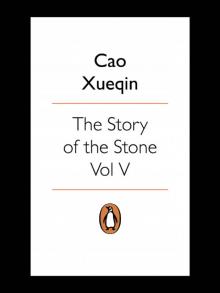 The Dreamer Wakes
The Dreamer Wakes The Warning Voice
The Warning Voice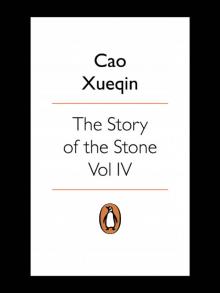 The Debt of Tears
The Debt of Tears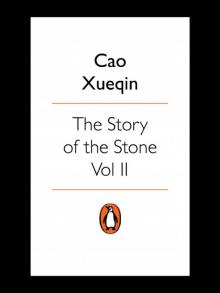 The Crab-Flower Club
The Crab-Flower Club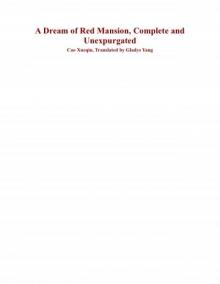 A Dream of Red Mansion
A Dream of Red Mansion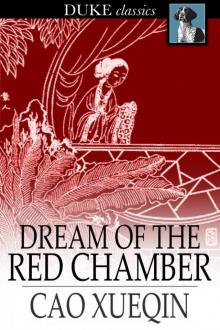 The Dream of the Red Chamber (Selection)
The Dream of the Red Chamber (Selection)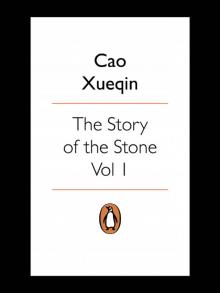 The Golden Days
The Golden Days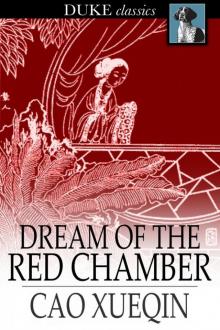 The Dream of the Red Chamber
The Dream of the Red Chamber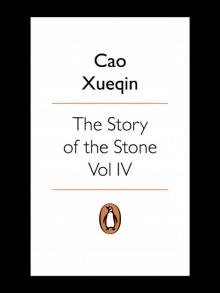 The Story of the Stone
The Story of the Stone